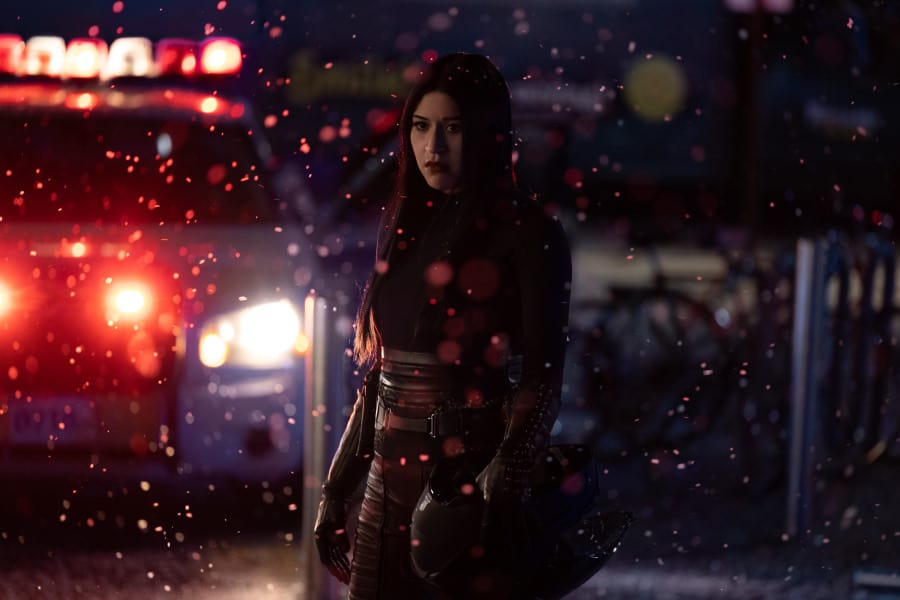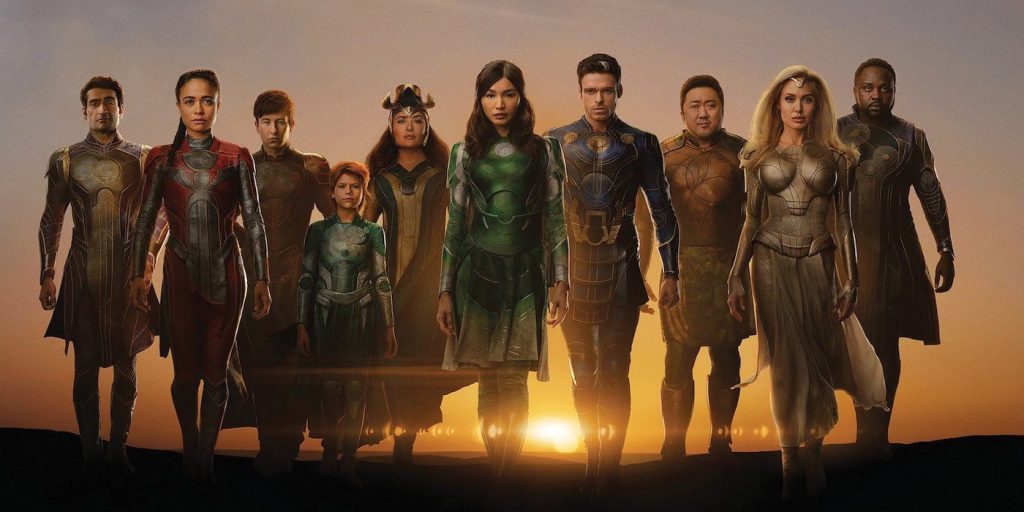The numbers are in and Echo premiered atop Hulu and Disney+ — and that benchmark should tell naysayers all they need to know about Marvel Studios. You see, they’re not “back.”
Marvel Studios never left. And Echo proves it.
Echo released five episodes in this short saga–each ripe with tension, melodrama, and action befitting of what people have come to expect in a Marvel Studios project. What began in Iron Man is alive and well in Echo. There is a plot that sucks you in, characters that take you by the hand, and a theme that rests on your shoulders as any burden or chip would.
However, the trailer’s grim reality is slightly different from what people expect in a “typical Marvel Studios” production.
There are two substantial reasons to correct that line of thinking:
- This was the inaugural offering from the new “Marvel Spotlight” banner
- There was never anything “typical” about Marvel Studios
That’s largely been the issue with the recent rating slump and dip in presumed quality in Phases Four and, now, Five. Not everything can be Avengers-esque. Yet, over 11 years and through 23 films, every trailer carries an aura of expectation not replicated in any other franchise.
Every franchise loses steam over time. The acting tends to dip. CGI goes over the top. The writing becomes hamhanded. And even the trailers start to suck a little. Shoot, even The Godfather, Part III sucked wind.
But Kevin Feige and Marvel Studios maintained their place on the award mantle in cinematic lore–even through the Ant-Man duopoly in Phases Two and Three–throughout the entire plight of Thanos. Then, they took a chance to delve into the Multiverse and introduce Phase Four.
Marvel Studios Claps Back at Casuals with Echo

Phase Four may have begun with Black Widow, but it ended with Black Panther: Wakanda Forever. Even Shang-Chi and the Legend of the Ten Rings earned $432M. While Phase Four was a disappointment (yes, Thor: Love and Thunder, we’re staring at you), Kevin Feige’s and Marvel Studios’ Achilles’ heel was exposed.
In Phase Five, GOTG, Vol. 3 has been the only shining spot, mashed between Quantumania and The Marvels. Throughout the meandering of Phase Four and the introduction of Phase Five, we find celebrated highs of WandaVision and Loki as well as the thunderous speed bumps of She-Hulk and a disappointing Moon Knight.
That brings us to Echo.
Serious fans of Marvel’s efforts have celebrated this series of new and familiar faces. Has Marvel Studios (or Spotlight) “returned to form,” as GVN critic Lane Mills described? Most definitely. Is this a Disney+ attempt to win back Marvel fans who want a little TV-MA fun with their televised comics? You bet.
And not for nothing, but did it matter? No, because casual Marvel fans did what they normally do–reward an unheralded comic personality outside the Avengers with a Meh sammich.
The story of Maya Lopez, a deaf Latina with Cheyenne blood coursing through her veins and one earnest temper problem, was rewarded with limited fanfare. Sitting at 72% among critics and 68% among audience, Echo is the second worst-rated MCU TV series in its history, only behind that Skrull turd Secret Invasion (53%).
Well, that’s RT. Who cares what they think? Well, it’s a 62 on Metacritic. IMDb gave it 6.3 and is only trending at 41%. Letterboxd put it in a 3.0 compartment. If the casuals remove their Captain America helmet and Iron Man armor, they see a different series–the Echo everyone was meant to see.
How Echo‘s Footing Relates to Marvel Studios’ Achilles’ Heel?

It all “kicks off” here.
When Eternals landed on Earth, they were intended to become the next era of Marvel Studios. One problem: With $400M at the box office, casual fans didn’t embrace the story of the Celestials, Deviants, and Eternals.
Never mind the fact that these characters are so powerful and dense with content. Forget that Thanos was born of two Eternals and becomes the host of the Deviant gene. (Yes, that means there was a connection to the Marvel Big Bad). And just ignore that Harry Styles as Starfox (aka Eros) was Thanos’ half-brother. (Yup, another connection.)
Because the Eternals weren’t the Avengers, they were immediately slighted.
Kevin Feige did his homework–not only about the characters but also the majority of the fans. He knew they would have a difficult time accepting people not named Tony Stark, Bruce Banner, and Steve Rogers. The Eternals was that golden opportunity. Yet, fans considered Eternals a disappointment because of a lackluster Feige swag.
Another explosive, mind-numbing cinematic experience was on the tee. The mad Titan of Marvel was ready to crank a bewildering shot on the green. However, the applause of a fantastic swing never happened.
No one is perfect and even the cinematic greats trip over their own feet from time to time. And speaking of feet, Feige’s Achilles’ Heel was exposed by underestimating fans’ acceptance of comics unknown to them.
Yet, it’s possible even that isn’t true. Guess who is a character in Marvel Comics? Part of a faction called Pantheon, this armored dude is a bastard son of Loki.
Meet Achilles the Asgardian! Kevin Feige, all hail!
Since he saw ‘Dune’ in the $1 movie theater as a kid, this guy has been a lover of geek culture. It wasn’t until he became a professional copywriter, ghostwriter, and speechwriter that he began to write about it (a lot).
From the gravitas of the Sith, the genius of Tolkien and C.S. Lewis, or the gluttony of today’s comic fan, SPW digs intelligent debate about entertainment. He’s also addicted to listicles, storytelling, useless trivia, and the Oxford comma. And, he prefers his puns intended.








